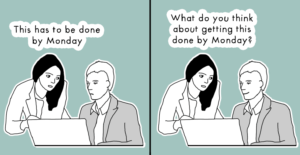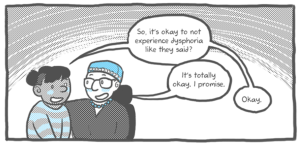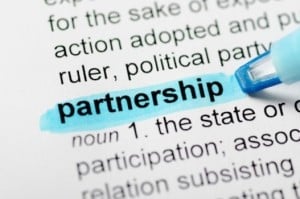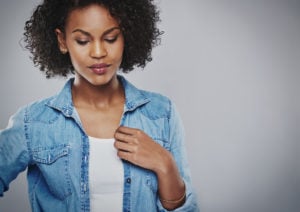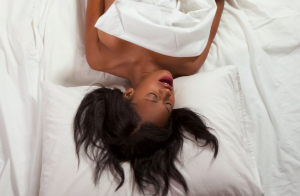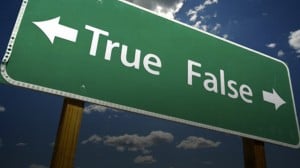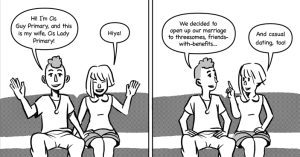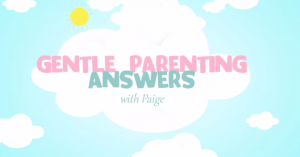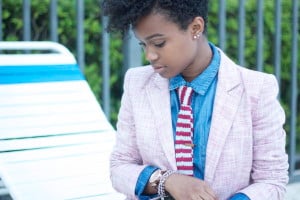
Source: ELIXHER
When I was 15 and first considering a short haircut, everyone wanted to throw in their two cents.
My mom and my sister were hesitant at best, cringing at the cropped pixie cut I had in mind and insisting I had “such nice hair.” My friends said I was all talk and wouldn’t actually take the plunge.
People acted as though cutting my hair was going to be some cataclysmic, life-altering decision that I would instantaneously regret. I began to think that perhaps I had taken my long hair for granted. Maybe I would miss it.
Maybe I would actually look bad with short hair.
Though I ultimately went through with my plan to cut my hair, the resistance that it inspired really got me thinking about the implications of girls choosing to have short hair.
When we consider altering our physical appearance, it’s understandable that our decision-making process might be influenced, to a certain degree, by how others might perceive us.
For many women, this prospect creates a lot of anxiety because we’ve been taught to always cater ourselves to the male gaze.
From birth, we are conditioned and pressured to conform to Western beauty standards, strive for the approval of men, and be rewarded by our society with acceptance and privilege.
Supposedly, the more we adhere to gender expectations, the happier we’ll be.
As a result, any traits not associated with traditional femininity – such as having short hair – are demonized, stigmatized, and stereotyped as masculine.
This situation is especially real for women who hope to attract men: If a woman doesn’t express femininity in the “correct” way, she might be degendered or desexualized, which can be incredibly harmful for some people’s self-esteem.
And yes, straight girls worry about being misread as lesbians if they cut their hair.
Which brings me to two questions: Why do girls think that being seen as a lesbian is an insult? And how are gender expression and sexual identity so easily conflated for women?
Let’s unpack the driving social forces behind the fear.
Femininity Is Heavily Codified, But Constructed
We learn from a young age that looking and acting a certain way is crucial to gaining attention, affection, and respect.
We’re encouraged (or coerced, really) to gravitate towards pink and experiment with makeup and heels.
As we get older, what started out as a space of fantasy and play in childhood becomes an obligation and a responsibility.
While makeup is not a bad thing at all, some women feel pressure to wear it every time they leave the house because we’ve been conditioned to believe that our natural selves are inadequate for public consumption.
Women are, in a sense, recruited to perpetuate the myth of femininity as effortless, when in reality, it’s a meticulous art that must be rebuilt on a daily basis.
Further, society tells us that a woman’s desirability is completely contingent upon her ability to execute femininity well – if not better than other women.
Unsurprisingly, these standards teach us that male attention should be our ultimate goal, thus encouraging us to self-police ourselves and view each other as rivals.
Women who don’t feel compelled to conform to their assigned gendered expectations and compete for male validation represent a threat to the patriarchal status quo and risk being ostracized
Consequently, so much of what we understand as true womanhood is, frankly, arbitrary.
As much as I love my femininity, not having long flowing hair or wearing dresses or a full face of makeup doesn’t make me any less of a woman. I’m a woman just by virtue of knowing that I’m a woman.
Certain types of feminine expression can be enjoyable, but it’s by no means mandatory or inherent.
Gender Expression Doesn’t Indicate Orientation
Gender expression and sexual orientation are two different things.
How you choose to present yourself has no bearing on who you might be romantically or sexually attracted to.
This false belief stems from the heteronormative and binaried idea that masculinity has to complement femininity and vice versa.
Following such basic logic, a woman who appears “masculine” must be attracted to other women, making women with short hair lesbians.
It makes sense that this misinterpretation would be a problem for straight women because their short hair would effectively act as boyfriend repellent and drive all men away forever — or something.
But here’s the thing: Short hair can be very feminine (if that’s your thing). I should know – I chopped off my hair when I was 15 despite the hesitations of my mom and sister, ironically in hopes of getting the attention of a boy I liked.
While things with the guy didn’t pan out, everyone said I looked great, and I kept the pixie cut for the rest of high school.
Plenty of short-haired girls have boyfriends.
Despite what the gender police might argue, only a percentage of guys are going to shut you down because of something as arbitrary as hair length – and if that’s the type of guy that you’re aiming for, you should probably change your standards.
Not to mention that girls wear jeans and T-shirts and non-overtly feminine clothing all the time, and no one questions their heterosexuality.
And hey, masculine women can like men! Feminine men can like women! It’s not always clear-cut by gender roles.
You can be secure in your femininity and sexuality regardless of hair length.
Subtle Homophobia is Still Homophobia
The vast majority of people agree that homophobia is bad. Most of us would never attack or discriminate against someone because of their orientation.
However, if you’re a straight woman who’s ever been concerned about being seen as a lesbian, you might want to take a second to stop and think about why you think that being perceived as gay is an insult.
“But no,” you might protest, “I’m not homophobic! I just don’t want people thinking I’m a lesbian because I’m not one!”
Alright. I’ll let you have that one… for about five seconds.
Again, the idea that everyone you know is going to mistake you for a lesbian indefinitely because you cut your hair or you have some vaguely masculine quality is so bizarre to me.
Who cares? Just tell them that you’re not. Problem solved!
The fact that women anticipate that people will react negatively to them if they look masculine or “gay” actually says more about them than those who make the snap judgments.
As uncomfortable as it is to admit, most girls don’t want to be seen as gay because they associate lesbianism (specifically, masculine lesbians) with being undesirable and unattractive to men.
The implication is that lesbians are unworthy of respect because they don’t adhere to feminine expectations. They’re not the “right” type of woman, so you have to distance yourself from them.
Gotta love it: Internalized misogyny on top of homophobia!
If you truly believe that being gay isn’t a negative thing, you wouldn’t mind that people might think you’re gay. Alternative sexualities shouldn’t be perceived as tarnishing someone’s character.
Keep Straight Privilege in Perspective
I always find it funny (and by “funny,” I mean “slightly irritating”) that straight women are so incensed by the possibility of being presumed lesbians when a lot of queer women I know would like nothing more than to be read as not straight.
The premise of this entire grievance for straight women rests on them making some miscalculated effort to accidentally project a gay image to others, whereas I know girls who could go to Thanksgiving dinner draped in rainbow flags, and their grandma would still ask them if they had a boyfriend.
Queer visibility is a big issue because compulsory heterosexuality is a pervasive force.
The stakes are particularly high for women because any time a woman tries to wield sexual agency, she’s generally treated with skepticism and suspicion.
While queer women would love not to have to constantly prove their queerness, straight women are just interpreted as straight 99% of the time because of the luxury of universal heterosexuality.
This ties back into gender expression as well.
One of my best friends lives in flannel. That girl has a wardrobe of like twelve different flannel shirts. Everyone thinks she’s a lesbian, but she’s straight with a boyfriend.
Meanwhile, I’m queerer than a Key West drag show, but because I wear jewelry and nail polish and dresses, people think I’m straight. Don’t even get me started on being a femme who likes femmes. Yikes. The invisibility runs deep.
Straight privilege ensures that most of the time, your sexuality is read correctly. You don’t have to consider the consequences of being “found out” as straight – and shockingly, most men are going to want you, minus the dudebros who whine about superficial crap.
Even if you are occasionally misinterpreted as gay, it doesn’t matter much. Sure, you might be a bit embarrassed, but you’re probably not going to have any problem finding a partner or facing your employer or your family.
Rather than wasting time angst-ing about a hypothetical, be grateful to live a life in which your identity is unquestioned.
Don’t Perpetuate Prejudice
No matter how unintentional or subconscious your bias is, putting down or stigmatizing another group of women to shore up your confidence in your own femininity is gross.
Break the cycle.
De-condition yourself from thinking that women aren’t allowed to have certain traits or express themselves in certain ways.
Help shape a more positive environment for the young women in your life. Teach them that they deserve to be accepted for who they are.
Finally, eradicate lesbophobia and queerphobia among girls. Women are great. Lesbians are great. It shouldn’t threaten your sexuality to associate with them or support them or – gasp! – even look like them.
Whether or not you “look like a lesbian” is highly subjective. As long as you feel comfortable and happy in your own skin, rock on.
[do_widget id=”text-101″]
Erin Tatum is a Contributing Writer at Everyday Feminism. She’s a feminist, queer theory lover, and television enthusiast living in Pennsylvania. She is particularly interested in examining the representation of marginalized identities in media. In addition to Everyday Feminism, she’s also a weekly contributor to B*tch Flicks. Follow her on Twitter @ErinTatum91 and read her articles here.
Search our 3000+ articles!
Read our articles about:
Our online racial justice training
Used by hundreds of universities, non-profits, and businesses.
Click to learn more





